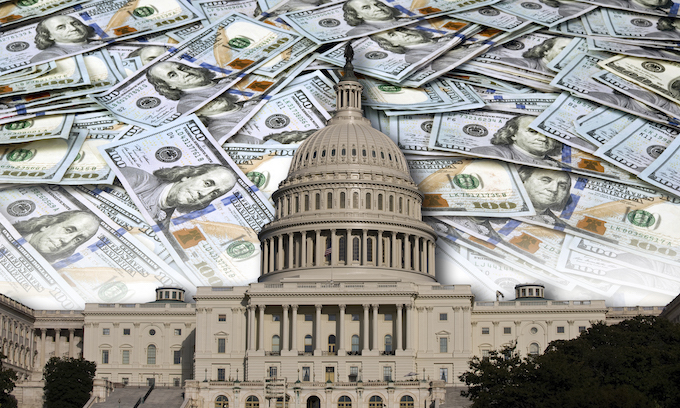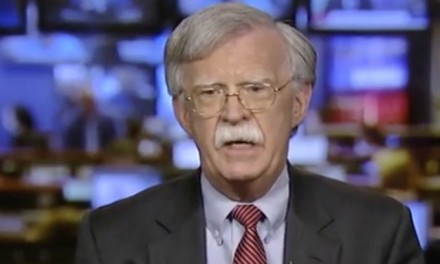The House of Representatives late Friday approved a key element of the Biden administration’s domestic agenda — a $1.2-trillion infrastructure bill. The media focused on the politics of the measure — how it will bolster the president’s approval ratings, conservative pushback at the 13 Republicans who voted “yes” and its opposition by six progressives.
But the politics is a side issue. This outrageously expensive package adds to an annual federal deficit that already tops $2.8 trillion, despite some farcical claims to the contrary. “Democrats claim the bill pays for itself through a multitude of measures and without raising taxes,” CNN reported, but “the Congressional Budget Office brushed aside several of those pay-for provisions.”
Congress said it would repurpose leftover money originally earmarked for COVID-19 relief, but those were always only borrowed dollars. Furthermore, CNN noted Congress’ spending gimmicks to “pay” for the bill, such as delaying the implementation of a new Medicare and Medicaid rule.
We can’t count how often the supporters of some massive new spending bill claim that it will pay for itself or save money in other areas of the budget. This never happens. Typically, bureaucracy and overly generous labor and consulting contracts diminish the appropriated funds.
Infrastructure is indeed crucial for the economic progress of our nation. We all see that our roads, highways, bridges and transit systems have gotten shoddy. The government does a remarkably poor job of maintaining structures that it had previously funded, so we have no gripe with the stated purpose of the bill. The devil, however, always is in the details.
As typically happens, much of what’s termed infrastructure isn’t really traditional infrastructure. The legislation, for instance, spends $15 billion on subsidies for electric vehicles and charging stations. The nation’s ports — especially at Los Angeles and along the West Coast — are struggling with backlogs. Some of the port-directed funds simply mandate investments in low-carbon technologies.
Much of this spending is more properly the responsibility of states and localities. Some of the federal spending is long overdue, such as investments in bridge repairs and our crumbling interstate highways, but the spending bill ends up simply throwing money at problems without much concern for efficient spending practices.
The libertarian Reason magazine explained that the legislation is “larded up with provisions that will make infrastructure projects more costly for taxpayers,” including costly “Buy American” provisions. “The infrastructure bill could have been an opportunity to reform other federal rules that unnecessarily drive up the cost of building infrastructure,” it added.
Those include the convoluted environmental review process and labor rules that require payment of union wages. The president and congressional Democrats seem to view this as a massive make-work project where additional spending is a good in itself — rather than a chance to get as much rebuilding accomplished as possible. It will potentially keep alive poorly conceived boondoggles such as California’s high-speed-rail line to nowhere.
The bill reinforces our usual take on government spending. Lawmakers love to appropriate money without worrying about how that money ultimately is spent. The only good take we have is that matters could have been worse, given some progressives’ failure to use their opposition to this bill to leverage support for an even-worse $1.75-trillion social-spending and climate bill.
___
(c)2021 The Orange County Register (Santa Ana, Calif.)
Visit The Orange County Register (Santa Ana, Calif.) at www.ocregister.com
Distributed by Tribune Content Agency, LLC.
—-
This content is published through a licensing agreement with Acquire Media using its NewsEdge technology.



















The treachery of the traitorous, socialist Democrat Party know no bounds.
Increase Taxes on everything and bring American commerce and economy to its knees.
Then access power and retain it by any means available –
No matter the costs to the people, the government or the nation.
This traitorous, dishonorable, dishonest, immoral, socialist Democrat Party has become our country’s most destructive and deadliest ENEMY!
The 13 House RINO Republicans who voted in favor of the
Dishonest, socialist Democrat Party’s $1.2 trillion Infrastructure Con & deception bill are:
• Nebraska Rep. Don Bacon.
• Pennsylvania Rep. Brian Fitzpatrick.
• New York Rep. Andrew Garbarino.
• Ohio Rep. Anthony Gonzalez.
• New York Rep. John Katko.
• Illinois Rep. Adam Kinzinger.
• New York Rep. Nicole Malliotakis.
• West Virginia Rep. David McKinley.
• New York Rep. Tom Reed.
• New Jersey Rep. Chris Smith.
• Michigan Rep. Fred Upton.
• New Jersey Rep. Jeff Van Drew.
• Alaska Rep. Don Young.
Remember these traitorous RINO Democrats during the next election.
Vote these socialist Democrat RINOs OUT of office!!
How about a vegan budget? I’m all for it. No meat, especially pork, beefed up entitlements. Nothing fishy either!
Pity we can’t feed all those IN CONGRESS, to pigs, crocs and sharks!
THough as rotten and toxic as some of them are, we MAY give the animals, food poisoning.
How about we elect honest representatives who will vote for term limits, open honest communication,live decently, be honest and do the job they are elected for. Well if you don’t have your dreams what do you have.
CAN we even FIND any honest politican??
Call it what it is: a payoff to big money supporters and using your and my tax dollars to bride the ignorant masses to keep voting DemonRat.
BUT as we often see, THESE SORTS of handbacks, and pay offs/bribes, get done, and NOTHING GETS DONE about it.. even when they are breaking the law…